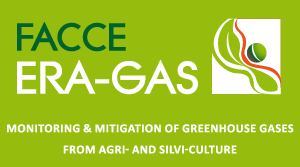The New Zealand Government has opened a fourth round of the Fund for Global Partnerships in Livestock Emissions Research (GPLER), in support of the Global Research Alliance on Agricultural Greenhouse Gases (GRA).
The GPLER invests in collaborative projects that advance innovative, cost-effective and sustainable solutions to reducing greenhouse gas emissions from pastoral livestock farming. This round is valued at over NZD$9 million and seeks projects in response to research challenges spanning rumen function, nitrous oxide emissions, soil carbon change, and improvements in farm-system emissions intensity.
Applications are welcomed from multi-disciplinary teams that pool the best international expertise. Any GRA member country can lead bids but there are minimum requirements for New Zealand participation that must be met.
The deadline for applications is 14:00 NZST, Friday 8 July 2016. Projects are expected to start by July 2017 and conclude by June 2020. For more information on the GPLER, including downloading the Rules & Guidelines for Applicants and the pre-proposal application form, please see https://www.mpi.govt.nz/funding-and-programmes/farming/global-partnerships-in-livestock-emissions-research/
The college of Agricultural and Environmental Science, UC Davis has posted an interesting article on “Facts and Fiction on Livestock and Climate Change” by Frank Mitloehner, Professor UC Davis.
Professor Mitloehner shows the proportion of US total GHG emissions from livestock production (4.2%) in comparison with emissions from other sectors. Suggesting that a direct comparison between emissions from the US livestock sector and the energy (31%) and transport sectors (27%) brings into perspective the amount of difference that can be made by reducing livestock emissions.
Of course that is not to suggest that the livestock sector is not required to play its part in reducing emissions. The article shares impressive statistics from the US beef and dairy sectors showing how production from both sectors has increased over the last 50-65 years, although the total number of livestock has decreased.
Dairy:
- 1950: 22 million dairy cows produced 117 million tons milk
- 2015: 9 million dairy cows produced 209 million tons of milk. (Fifty-nine percent fewer cows produced 79 percent more milk than they did in 1950.)
Beef:
- 1970: 140 million head of cattle produced 24 million tons of beef
- 2015: 90 million (36 percent fewer) head of cattle produce 24 million tons of beef
The full article can be read on the UC Davis website.
For information on some of the management practices that the US are using to continue reducing emissions from their dairy sector in particular see the case studies developed by the Livestock Research Group.
‘Reducing Enteric Methane for Improving Food Security and Livelihoods’, a project implemented by the Food and Agriculture Organisation (FAO) and New Zealand Agricultural Greenhouse Gas Research Centre in association with the Global Research Alliance (GRA), has a new website where you will soon be able to see results from the project. The project aims to identify system specific technologies and interventions to increase ruminant productivity and reduce the emissions intensity of enteric methane. Ruminant production systems with low productivity lose more energy per unit of animal product than those with high productivity. The solution is to identify and implement low cost or no cost technologies that offer win-win scenarios to increase productivity across production systems, strengthen farmer livelihoods, and increase food security, while reducing methane emissions intensity.
We are pleased to announce that we have added more Member Country pages to the GRA website. Have a look at the links at http://globalresearchalliance.org/community/ to learn about agricultural GHG mitigation and Global Research Alliance involvement for Argentina, Malaysia and Poland. More country pages are also to come! 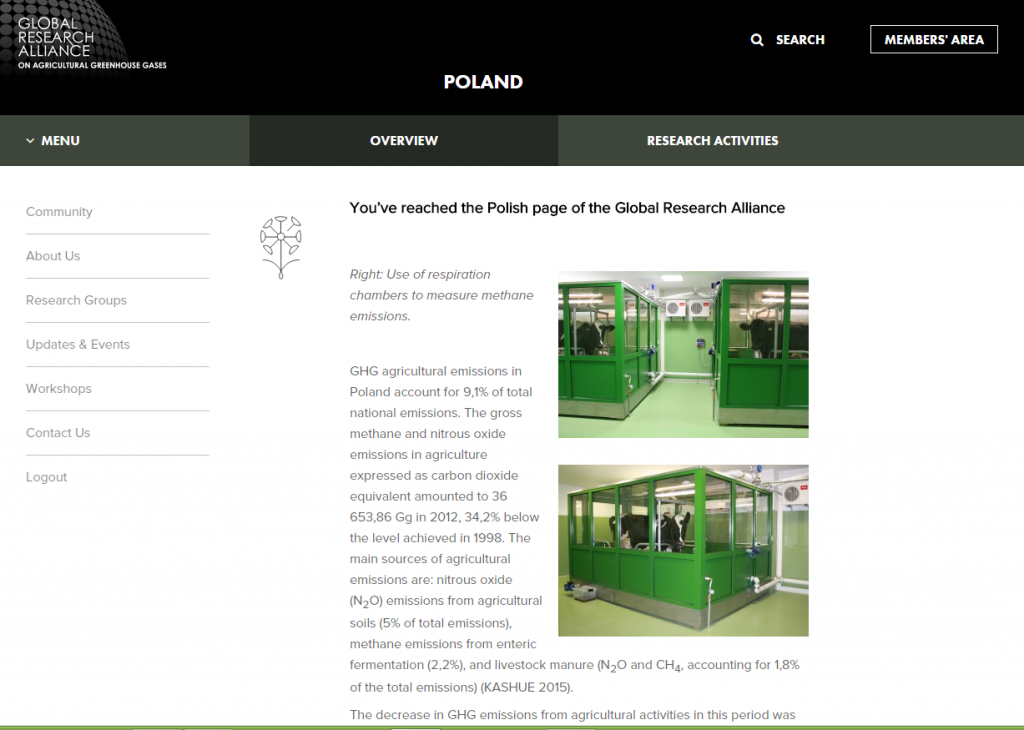
The Council for Agricultural Research and Economics (CREA) has opened a call for scientists working on organic agriculture to take part in a short (10-5 days) study stage at one of its research centers/units (see the call at www.entecra.it, unfortunately in Italian only).
The aim of the call is to promote future collaborative projects between European and CREA scientists in organic production area.
The call requires that a joint project is done with a CREA scientist working on organic agriculture.
Candidates should prepare a joint project, proportional to the length of the stage, about organic milk production and can contact [email protected].
In this case, the stage will be held at the Fodder and Dairy Production Research Centre at Lodi (40 km from Milan), and the scientist will be involved in current research projects on organic milk production.
The call considers a reimbursement of € 2.100, all expenses included.
Project proposals must be submitted by 30 May 2016, hence proposals should be sent as soon as possible, in order to prepare the stage project.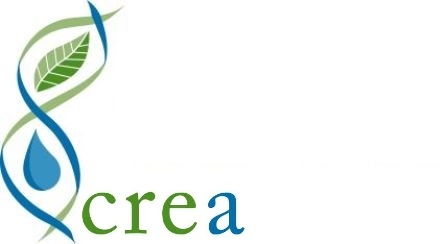
The March edition of the World Farmers’ Organisation (WFO) Farmletter focuses on livestock and includes an article outlining a project from the Livestock Research Group’s workplan, ‘Reducing enteric methane for improving food security and livelihoods’ – a joint initiative of the United Nations Food & Agriculture Organisation (FAO) and the New Zealand Agricultural Greenhouse Gas Research Centre (NZAGRC). The project will design cost-effective intervention packages for specific production systems, aimed to improve farm productivity, food security and rural livelihoods.
The project is funded by the GRA Partners Climate & Clean Air Coalition (CCAC) and the FAO, and by the New Zealand Government.
Download Farmletter (LRG article @ pages 14-17)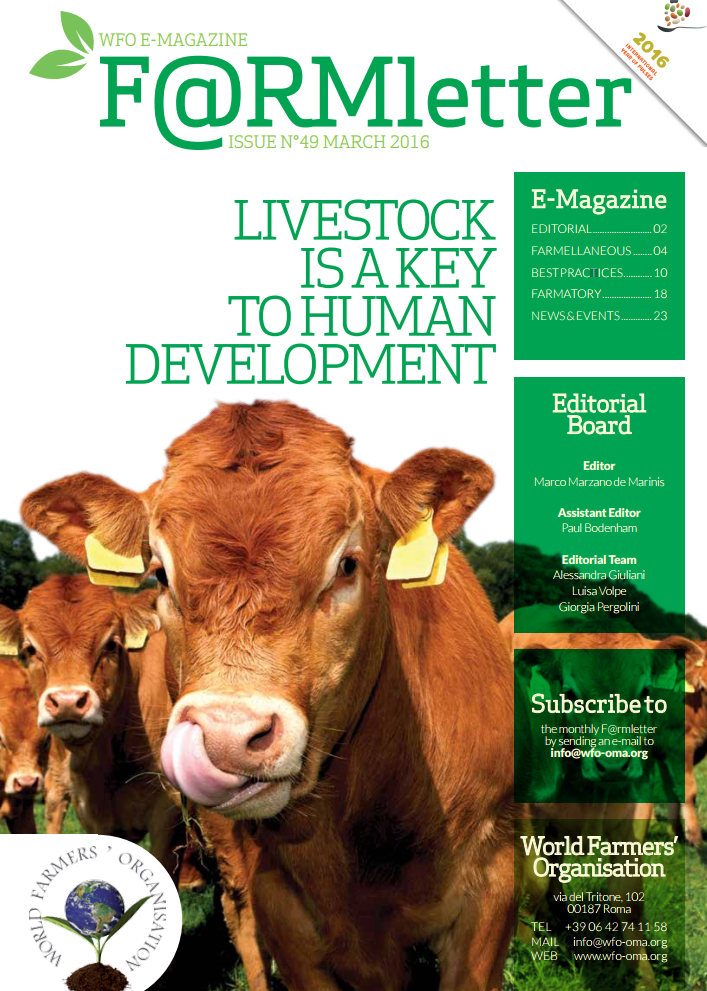
A PhD student is required for a project on the nature of stabilized carbon in soil under grasslands management, using 13C labelling techniques and molecular analyses. The project comes under the research programme “Management Options for Increasing Soil Carbon under Grasslands”, funded through the Global Partnership for Livestock Emission Research (NZ’s international research fund for GHG mitigation from pastoral livestock). The position is based at the INRA Versailles-Grignon, France.
Project Title: Quality, quantity and vulnerability of soil carbon stocks of grasslands soils under different management practices
The proposed research will be carried out under the framework of an international project between the National Institute for Agricultural Research (France) and the Landcare Research Institute (New Zealand). The objective of this international project is to evaluate the impact of intensification of grassland management on the dynamics of soil organic matter (SOM) in different pedoclimatic contexts. The PhD work will contribute towards the understanding of management impacts through the assessment of their influence on molecular transformations occurring during soil organic matter degradation and stabilisation processes. The conceptual approach includes an evaluation of degradation and stabilisation processes at field scale. We will study long-term experimental sites situated in France and in New Zealand and also use 13C labelling techniques. The results obtained during the PhD will contribute to ameliorate process information to be used in a biogeochemical model (CenW), which will allow for evaluating the implications of management practices on soil C dynamics and composition in the long-term, as well as resilience of the system to global change. The PhD thesis will provide an answer to these questions by going beyond global C stocks assessment through molecular analyses providing information on the nature and origin of SOM pools, which constitutes a major advance in the research field.
Apply with:
- A cover letter including a brief summary of research interests and experience
- Your CV and transcripts
- Contact information for 3 referees
Send by 3 May to:
Dr Abad Chabbi, [email protected]
OR
Dr. Cornelia Rumpel, [email protected]

Three Research Groups of the GRA, Croplands, Livestock and Paddy Rice, have each produced an easy-to-read overview of their group activities and structure.
Each of the brochures cover the six areas of work that the GRA focuses on: understanding the current research landscape, building capability, good practice guidance and methodologies, research networks and databases, collaborative research, and policy support & links to international initiatives.
- 2016 PRRG Brochure
- 2016 CRG Brochure
- 2017 LRG Brochure (updated March 2017)
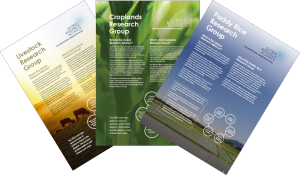
More information on each of the Research Groups can be found on the GRA website.
The National Institute for Agro-Environmental Sciences (NIAES) has announced the media release of the new publication, “Guidelines for Measuring Methane (CH4) and Nitrous Oxide (N2O) Emissions from Rice Paddies by a Manually Operated Closed Chamber Method”.
The guidelines are supported by the MIRSA-2 project “Technology development for circulatory food production systems responsive to climate change (Development of mitigation option for greenhouse gas emissions from agricultural lands in Asia)”, and funded by MAFF, Japan, to support the goals and objectives of the Paddy Rice Research Group of the Global Research Alliance.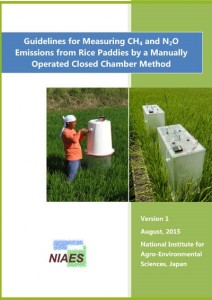
We are pleased to announce that more Member Countries of the GRA have their own country pages. Have a look at the links at http://globalresearchalliance.org/community/ to learn about agricultural GHG mitigation and Global Research Alliance involvement for Denmark, Finland, Switzerland and Vietnam. More country pages are also to come!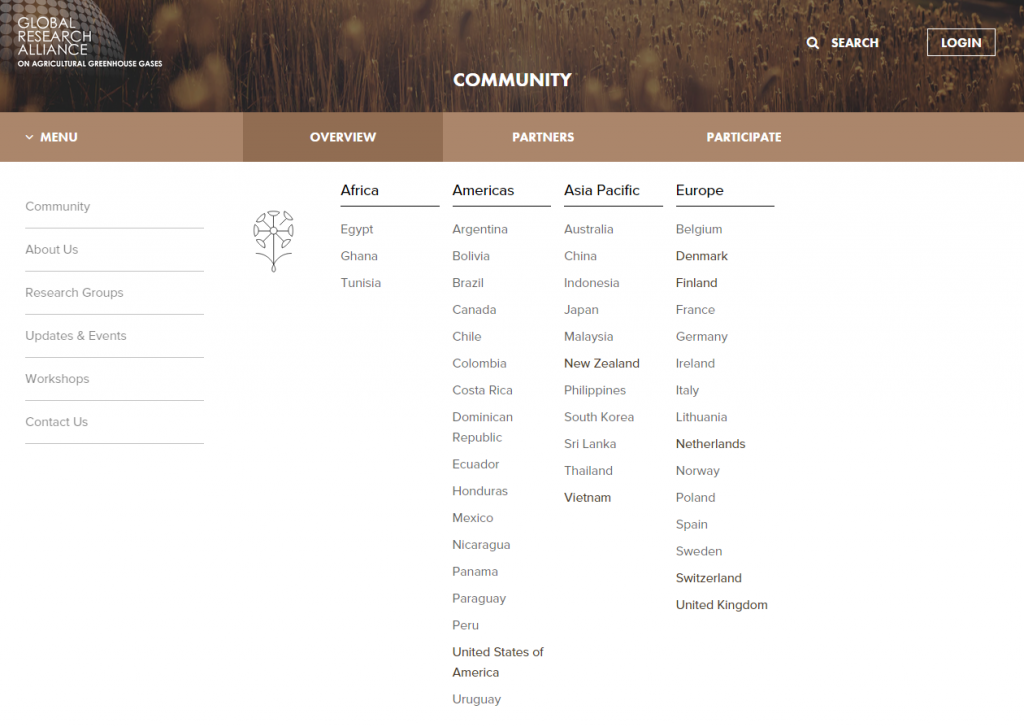
The global initiative, ‘4 per mil, Soils for Food Security and Climate’ of the Lima-Paris Action Agenda was launched during the December 2015 COP21 in Paris. It includes both an action plan and a research program, and is supported to nearly 150 signatories (including countries, regions, international agencies, the private sector and NGOs).
A Scientific Officer is sought for a two-year tenure to assist in the development of the international research program focussing on soil organic carbon in relation to the challenges of food security and climate change. Development will be supported by CGIAR, the GRA, INRA, CIRAD, and IRD in France; and by other national, European, and international partnerships.
Candidates are required to be trained in soil, environmental, or agricultural science; and to excel both in communicating research results and in organising events. Professional experience (2-5 years) would be appreciated. Working languages are French and English. The position is based at INRA’s headquaters (downtown Paris), and will involve travelling.
Salary is 2480 Euro gross/month (2060 Euro net.month)
To apply, please send your CV and covering letter by March 31, 2016:
- To: Dr Jean-Francois Soussana ([email protected])
- CC: Patricia Sanchez ([email protected])

Call for proposals: ERA-GAS ERA-NET for Monitoring & Mitigation of Greenhouse gases from Agri- and Silvi-culture.
The aim of the ERA-NET ERA-GAS Co-fund is to strengthen the transnational coordination of research programmes and provide added value to research and innovation on greenhouse gas (GHG) mitigation in the European Research Area and in New Zealand.
The scientific scope of the present call for proposals addresses collaborative projects in the following four research themes:
Theme 1): Improving national GHG inventories and monitoring, reporting and verification of emissions
Theme 2): Refining and facilitating the implementation of GHG mitigation technologies
Theme 3): State of the art production systems that are profitable and improve food and forest biomass production while reducing GHG emissions
Theme 4): Assessment of policy and economic measures to support emissions reductions across the farm-to-fork and forest-to-consumer chain.
Pre-Proposals must be submitted via the ERA-Net ERA-GAS submission tool by 3rd of May 2016 14:00 CET. Visit https://www.submission-eragas.eu/call1 to download the call announcement and for more information.